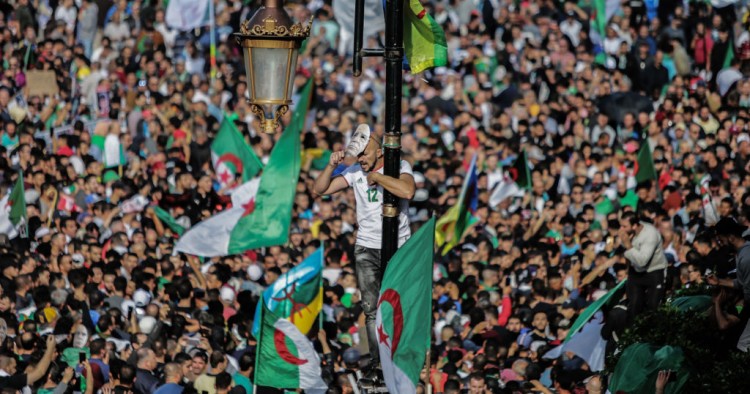In this second week of campaigning ahead of Algeria’s presidential election on Dec. 12, the government’s election commission and state media assert that everything is proceeding smoothly. Reporters at state media outlets who dispute that characterization have been removed. Army Chief of Staff Gen. Ahmed Gaid Salah, who has a more overt political role than any of his predecessors, insisted last week that Algerians support the election despite calls from the protest movement (hirak) to boycott it. The hirak, which mobilized large street marches last Friday for the 40th consecutive week, rejects the election. It understands that none of the candidates, all of whom have ties to the army-dominated system, can bring about the wide, deep political changes that the movement seeks.
The candidates face hostile demonstrations at their rallies; one candidate, from an Islamist party, had to flee his hotel in Laghouat, in central Algeria, last Friday under police protection in the face of a hostile crowd. Security forces provide heavy protection at the often sparsely attended election rallies and break up anti-rally protests. One opposition newspaper claimed 300-500 anti-election protesters have been arrested, and the government has detained some prominent civil-society activists.
There are two contests underway. One is between the five candidates, who make promises without much detail or even controversy. If no candidate wins a majority of the votes cast on Dec. 12, a runoff between the top two will follow two weeks later. The larger contest pits the army, which needs a high voter turnout to lend the election credibility, against the hirak, which aims to reduce turnout and limit any boost to the system’s legitimacy. Unless the army cracks down harder, the protests will continue. Although there has been little violence so far, government-organized pro-election demonstrations could clash with anti-election protests as the vote nears.
Robert Ford is a Senior Fellow at MEI.
Photo by Farouk Batiche/picture alliance via Getty Images
The Middle East Institute (MEI) is an independent, non-partisan, non-for-profit, educational organization. It does not engage in advocacy and its scholars’ opinions are their own. MEI welcomes financial donations, but retains sole editorial control over its work and its publications reflect only the authors’ views. For a listing of MEI donors, please click here.













